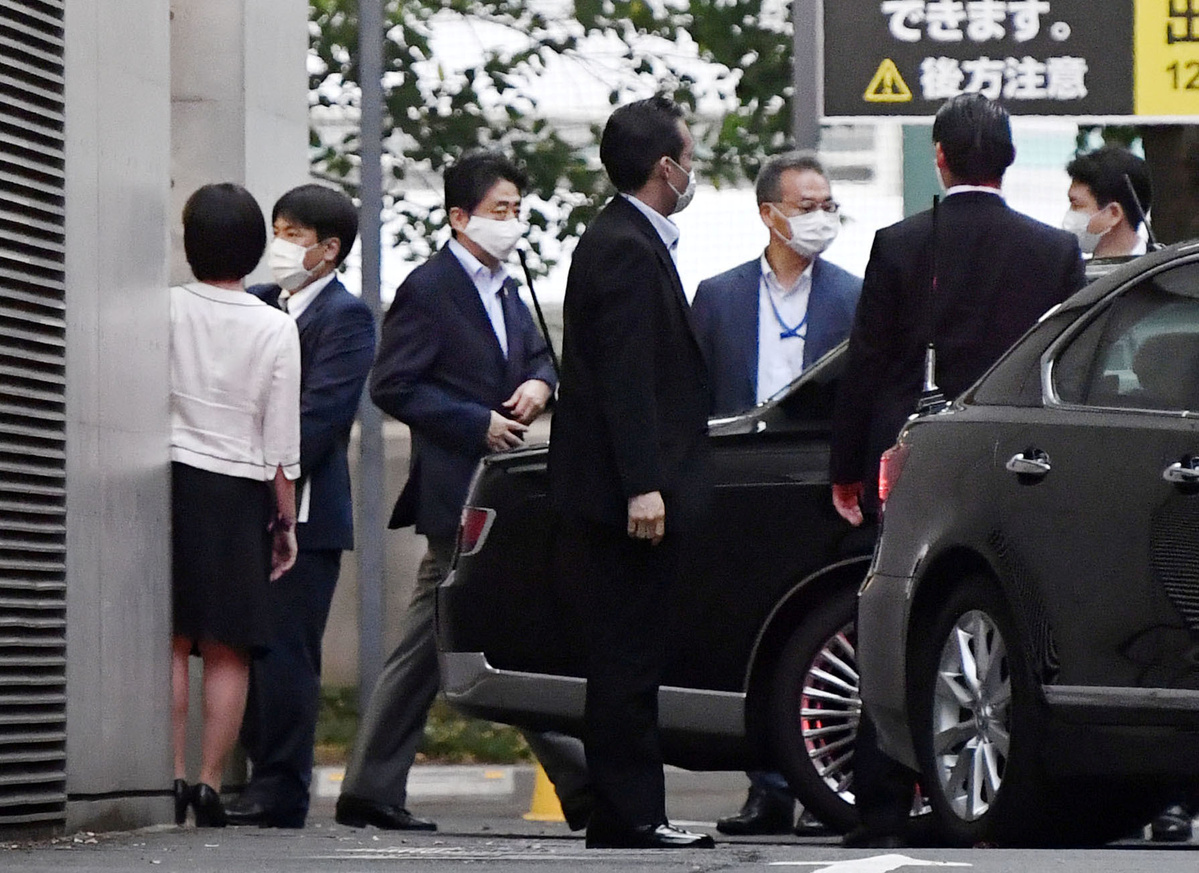Abe's party faces bulked-up foe
By WANG XU in Tokyo | China Daily | Updated: 2020-08-21 11:20

Japan's second-largest opposition party, the Democratic Party for the People, or DPP, will dissolve itself and form a new party through a merger with the Constitutional Democratic Party, or CDP, the largest opposition group.
In a general meeting held in Tokyo on Wednesday, a majority of DPP lawmakers agreed to a proposal made by secretaries-general of both parties to form a more organized opposition force to counter the ruling party of Japanese Prime Minister Shinzo Abe.
According to the agreement, the DPP is to take steps to dissolve itself within the next week or so. And it will then start canvassing each of its members on whether they are willing to be part of the merger.
CDP Secretary-General Tetsuro Fukuyama said the merger will bring the total number of lawmakers of the new party to at least 150 of the 710 across the upper and lower houses of Japan's Diet, the national legislature.
Wednesday's decision represented a repudiation of DPP leader Yuichiro Tamaki, who prefers a split rather than a merger and was thus seen as an obstacle to efforts to unite the two parties to create a new one.
"I'd like to get a conclusion today about the merger talk with the CDP, which has been going on since the end of the last year, with a desire to form a bigger force and change Japanese politics," Tamaki said at the beginning of the meeting.
"By putting an end to the DPP and starting a fresh chapter, I look forward to drawing a constructive, forward-looking conclusion."
Breaking ranks
It is expected that Hirofumi Hirano, the DPP's secretary-general who led the merger initiative, and some 20 DPP lawmakers will break ranks with Tamaki and join the CDP.
Tamaki and a dozen of other lawmakers had expressed their intention not to join the merger, including Seiji Maehara who is former foreign minister.
The DPP agreed to leave it up to Tamaki and Hirano to decide how to deal with those members and also what to do about a proposal made by Tamaki to split the party, rather than dissolve it.
Besides his objection to the CDP's liberal ideology, Tamaki expressed the apprehension over what he saw as an attempt by the CDP to plunder his party's 5 billion yen ($47 million) in funds.
Meanwhile, the CDP leader Edano Yukio expressed readiness to form the new party as soon as early September, but the possibility of splitting the DPP may put the plan on hold.
"Despite the merger and the efforts to consolidate their power, the new party had disagreements over many policies such as nuclear power, the consumption tax and constitutional amendment," said Masanari Koike, a former member of Japan's House of Representatives.
"The new party needs to carefully bridge their differences and narrow their gaps in order to have the ability to counter Abe's ruling block as a viable and formidable alternative," Koike said.
Agencies contributed to this story.
























